Crtd 13-12-03 Lastedit
20-12-15
The Gallows
Arrival at the LINGE 2 site
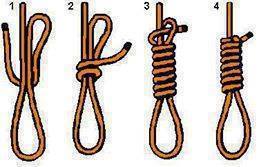 The piece
of land I now rent to moor at is known in the vicinity as De Galg (The
Gallows, Facebook Beesd Boek
26 August
2013). It used to be the judicial execution venue of Beesd. For long, it is
covered with short grass, surrounded by tall trees, but still sports a
certified toilet, indispensible for any convict ambitious to make a clean
impression at exit. The Gallows has no address and is not connected to the utility
supply networks. The "Waterschap" (local
water authorities), have marked its shore red, indicating a motorboat is
allowed, provided it is not wider than 4 m and not longer than 90% of the length
of the land's shore. There is no gallows. This gap we shall fill in due time,
concentrating more on the spatial statement than on historical accuracy. For a
sailor, it is just another knot. We plan to give weekend courses
"execution by hanging", low budget, but students should bring their own convicts.
The piece
of land I now rent to moor at is known in the vicinity as De Galg (The
Gallows, Facebook Beesd Boek
26 August
2013). It used to be the judicial execution venue of Beesd. For long, it is
covered with short grass, surrounded by tall trees, but still sports a
certified toilet, indispensible for any convict ambitious to make a clean
impression at exit. The Gallows has no address and is not connected to the utility
supply networks. The "Waterschap" (local
water authorities), have marked its shore red, indicating a motorboat is
allowed, provided it is not wider than 4 m and not longer than 90% of the length
of the land's shore. There is no gallows. This gap we shall fill in due time,
concentrating more on the spatial statement than on historical accuracy. For a
sailor, it is just another knot. We plan to give weekend courses
"execution by hanging", low budget, but students should bring their own convicts.
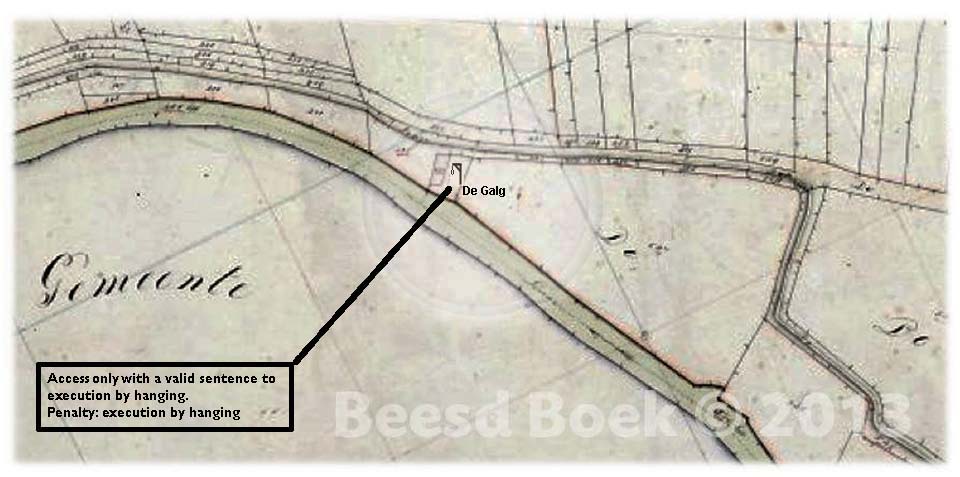
... The Gallows, my new mooring
site ...
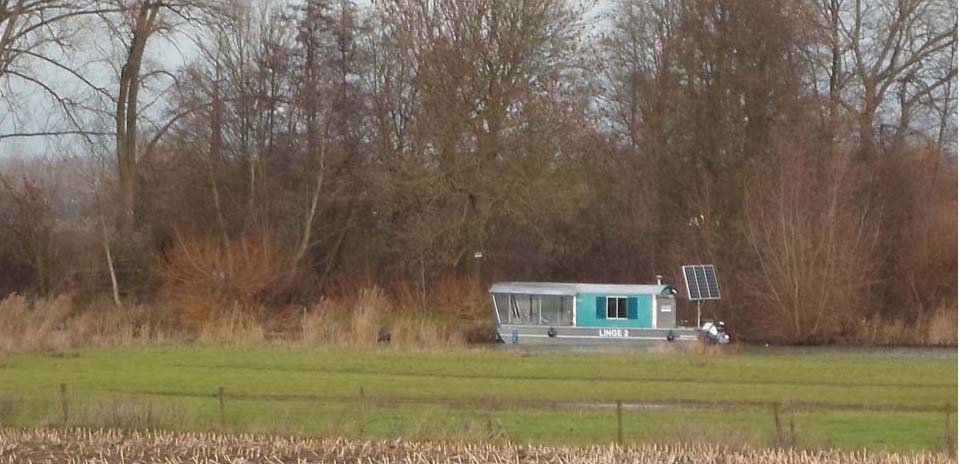
... The Gallows seen from
across the Linge ...
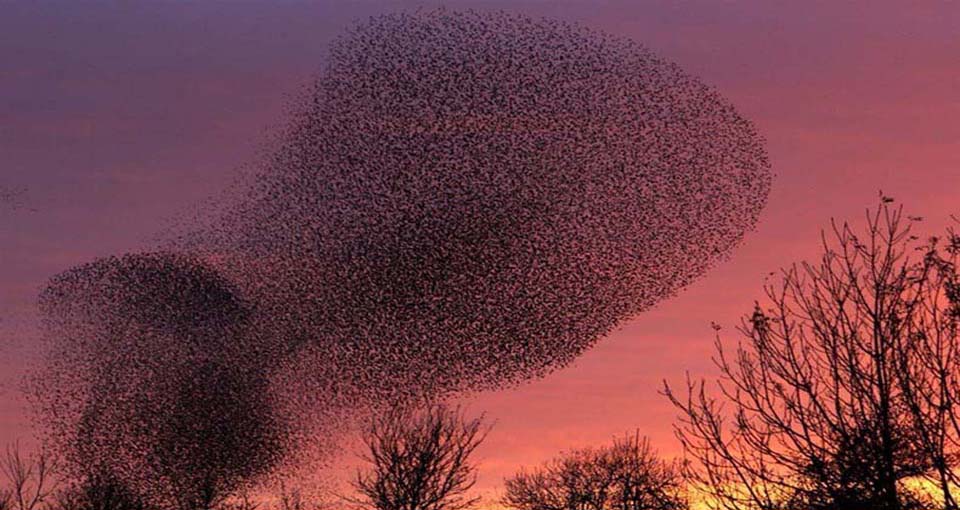
...
starlings, someone took this one nearby here and put it on internet ...
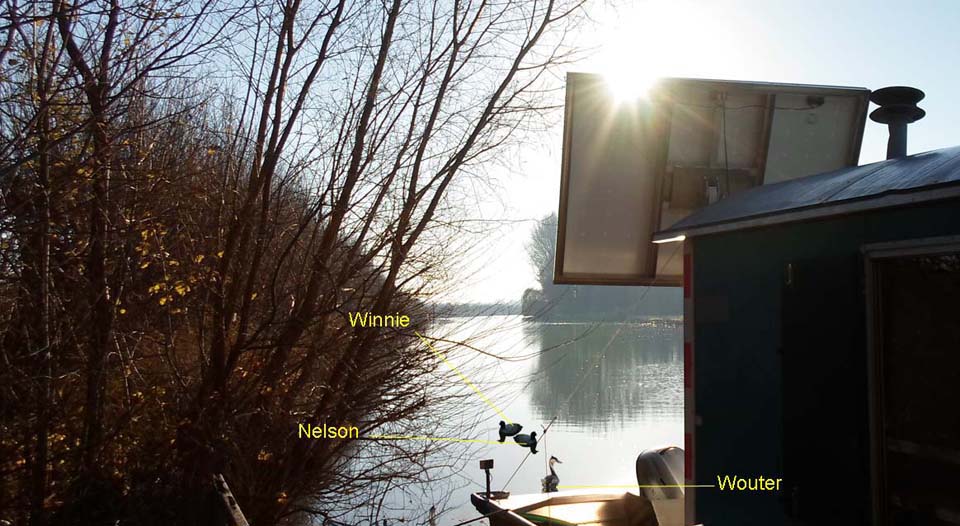
... meet
my neighbours all merely interested in Messiaen but after I accused them of
being ornithologically bornated
Wouter, (see his body language on the
picture) shows a lukewarm interest in jazz piano trios but only when they go
modal ...
When still a cabin on wheels, the hut stood
70 meters downstream, so for more couleur locale click
here.
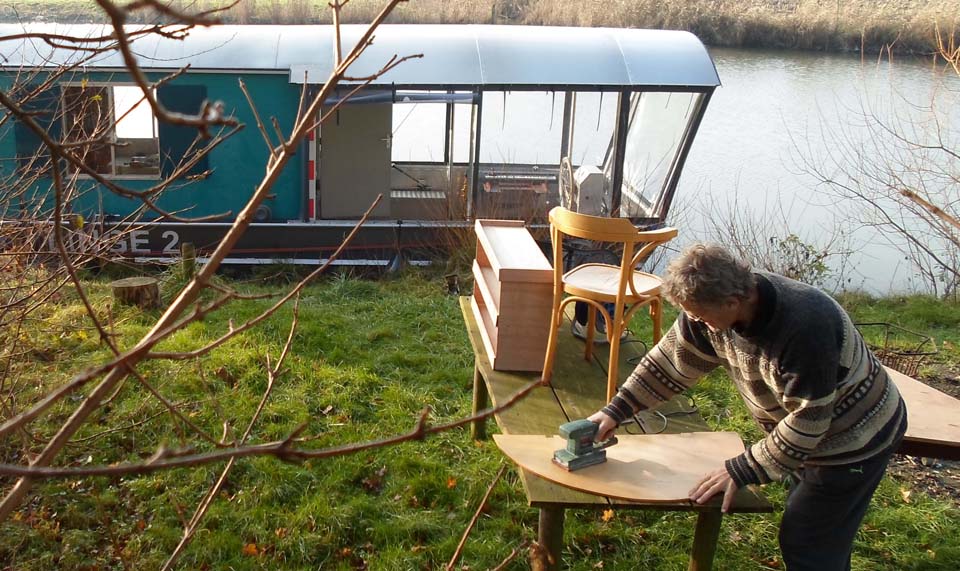
... sun:
warmth and solar power make the window for sanding
...
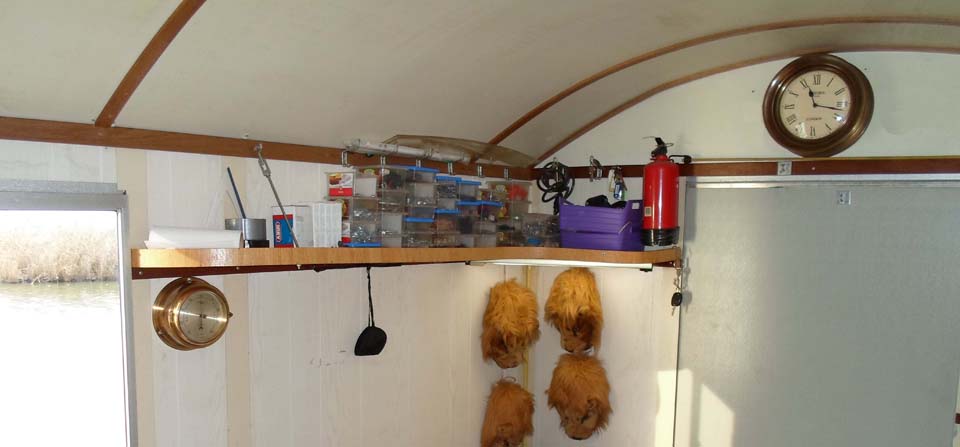
... copper
barometer and clock, indispensible albeit as statements only:
the internet page
of Herwijnen weather station at 8 km of course
has all one could dream of ...
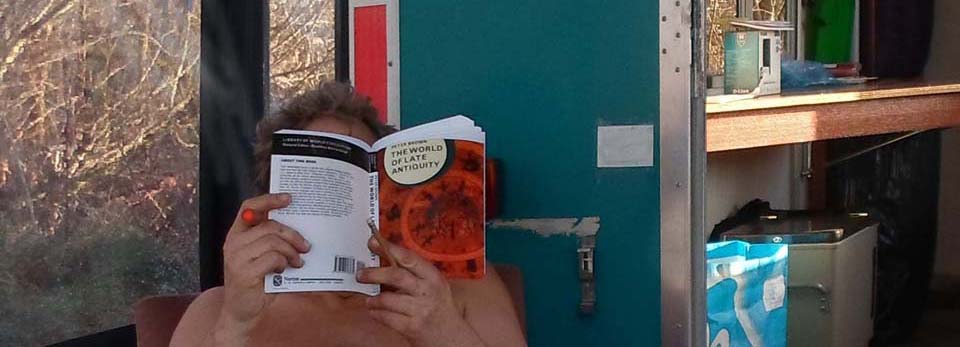
...
I went into Late Antiquity, to find out why Christianity beat the competition.
No clue yet ...
I went (again, click here)
into Late Antiquity (starting from a hard copy of Peter Brown), this time to
screen exactly why Christianity beat the ample religious competition of the
time. But so far no clue as for the doctrines. It must have been organization
(and may be doctrine smoothly geared to it). But how to keep up that excellent
organization quality you need to gradually grab total power during three full
centuries, that
is 10 or 15 generations ? What strikes
me most is the very good thinking of pagan Roman elite as opposed to the
simplicity of Christians, who just enjoyed being groomed as "chosen people" and
being read the bible stories which roughly have the causal and moral simplicity
of what is on display in our modern mass media.
Latin aristocrats,
not needing much time to manage their
rural estates, had a lifestyle called
otium,
a bit like mine: sitting on a nice place studying books, writing about them to
friends with no ambition at all to acquire recognition by publishing them. Hence from those circles you never read that kind of crap deep under which in our modern digital university libraries
the good stuff is
buried. But to them a place
fit for thinking was a villa with a giant personal library, while my
circumstances made me opt for a hut and leaving it to waterschap and municipality to keep my view tidy, take
my reading from internet, occasionally, if not available there, scanning to file
at a library.
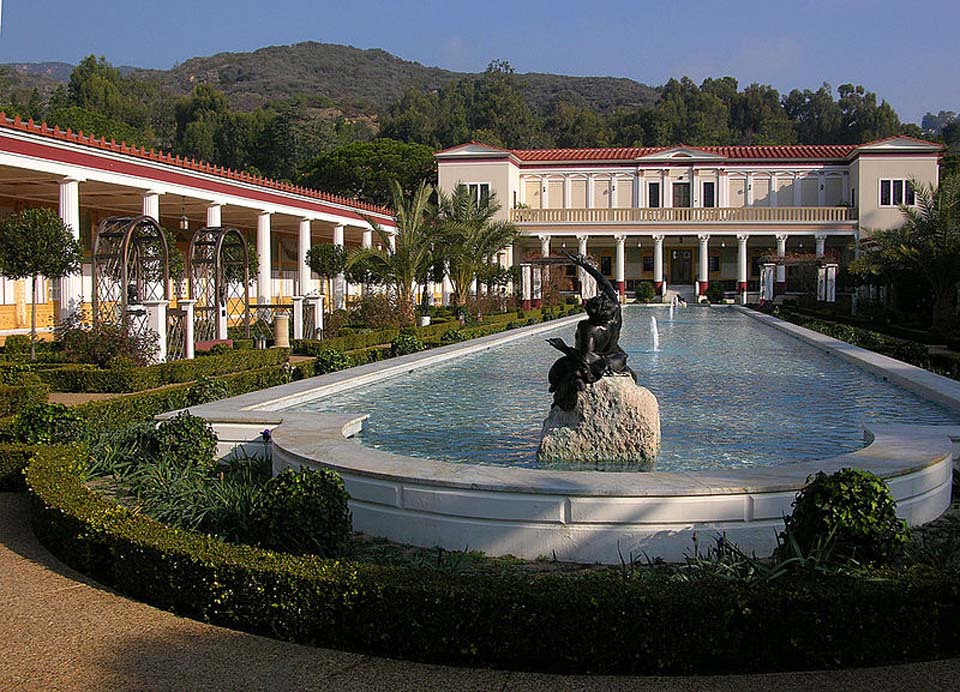
...
otium,
but the masons, painters and gardeners working here, not allowed to Plato's rolls in that
library,
had themselves read bible stories in some small Christian conventicle
Oh My God! what crap would the civil authorities slinking round my mooring here get fed
on TV?
Fortunately, unlike a villa, my platform can go anywhere ...
Classical pagans generally did not waste their time studying Christian doctrine. The few who did,
growing in numbers with the rise of the religion, point at its fake
pretension that the bible can, as some sort of "shortcut", replace
painstaking classical studies on the road to knowing and wisdom. True as it is,
it
obviously does nothing to reverse the process. Many pagan classical otium-aristocrats
bore us with detail errors in the bible chiefly concerning the prophet in
fashion. Neither that's how to prevent a spiritual derailment of Christian
proportions. If any law ruled the process, it looks like
Gresham's law: "bad money drives out good money": if good, valuable
coins are in circulation together with lesser ones, people tend to keep the good
ones at home, hence the quality coins will disappear from the market.
One
step of progress my understanding did make: the ridiculous and unmarketable
Christian disputes about the exact form of the incarnation of Christ, starting
with Athanasian opposition to Arianism, got their hold on the Christian
community only as late as the 4th and 5th century (Nicaea and Chalcedon being
the best known councils), that is, only after the entire Empire had gone bananas. This is the familiar phenomenon of internal
divisions quickly forming in a group the enemy of which has collapsed, as
brilliantly illustrated in Frans de Waal's book about our closest relative:
Chimpanzee Politics. On a council in Ephesus in 449, the bishop of
Constantinople, later Saint, Flavian, got beaten to death at the altar. The
number of Christian followers now had gotten worth a murder or two. Just as in
earlier stages at the end of the year the Roman Empire, for example, could
have the year's 4th emperor, and the preceding 3 would be dead
[more]).
Not much
later Christianity got divided, apart from a host of smaller groups, in three
big ones: Trinitarians in the West up to Constantinople, Egypt (Alexandria)
claiming that Jezus was God himself, and Nestorians in Asia minor and further
East, teaching he was a human. So this doctrinal strife issue being relegated to
the aftermath, how did this huge mass of followers get secured by the early
Christian mission in the first place? No clue yet.
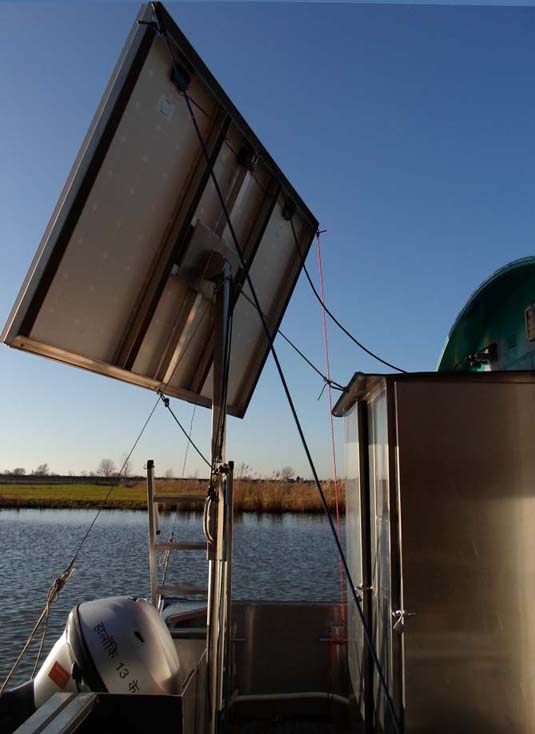
... solar parasol now simply rigged like a
mizzen: 3 stays, allowing the mast to turn, and 3 sheets ...
I do plan for longer trips to wait for backish winds and use the solar parasol
as a sail. The good thing for a boat with 20 cm draft is that the "sails" mast
is 40 cm from the steering outboard engine. On arrival in Friesland we shall buy
eel for the money saved on fuel.
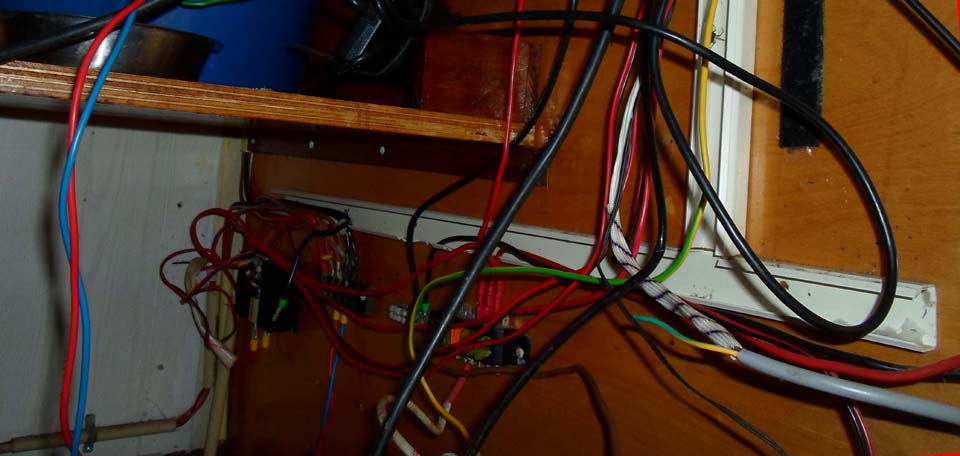
...
while rewiring you find that, in intricacy, philosophy is no match to your
electric system ...
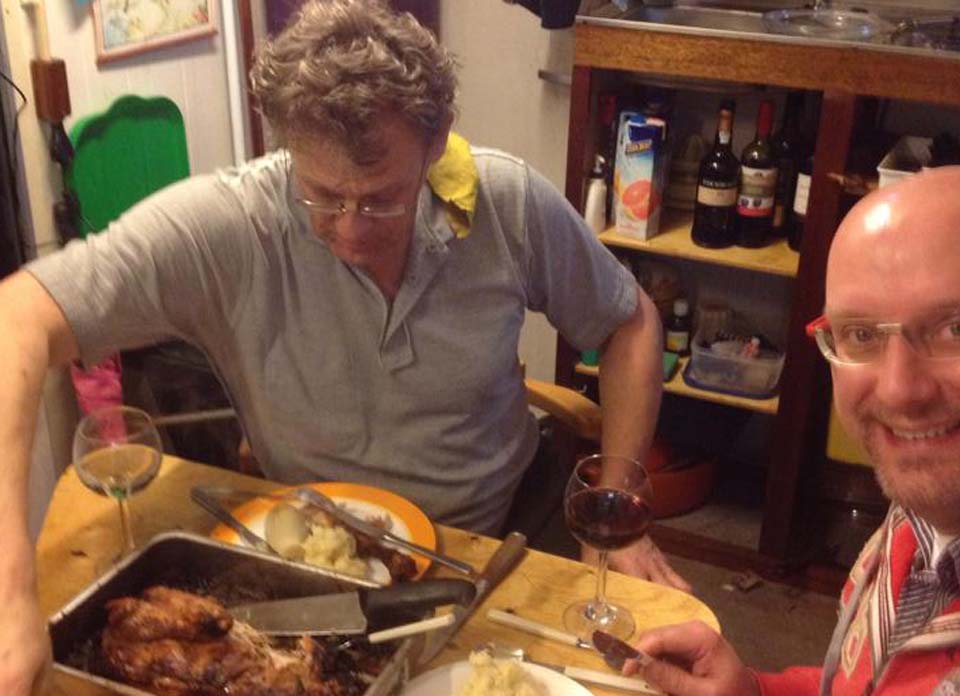
...
we receive our first guests, though there's not always time to talk to them ...
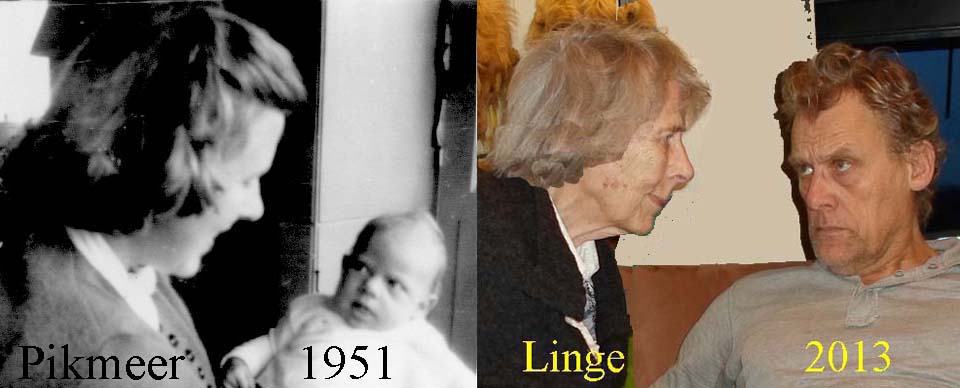
... and celebrate change of year with my mother, the Pikmeer is a small lake
in Friesland, where her family had a little wooden house only reachable by boat ...
 The piece
of land I now rent to moor at is known in the vicinity as De Galg (The
Gallows, Facebook Beesd Boek
26 August
2013). It used to be the judicial execution venue of Beesd. For long, it is
covered with short grass, surrounded by tall trees, but still sports a
certified toilet, indispensible for any convict ambitious to make a clean
impression at exit. The Gallows has no address and is not connected to the utility
supply networks. The "Waterschap" (local
water authorities), have marked its shore red, indicating a motorboat is
allowed, provided it is not wider than 4 m and not longer than 90% of the length
of the land's shore. There is no gallows. This gap we shall fill in due time,
concentrating more on the spatial statement than on historical accuracy. For a
sailor, it is just another knot. We plan to give weekend courses
"execution by hanging", low budget, but students should bring their own convicts.
The piece
of land I now rent to moor at is known in the vicinity as De Galg (The
Gallows, Facebook Beesd Boek
26 August
2013). It used to be the judicial execution venue of Beesd. For long, it is
covered with short grass, surrounded by tall trees, but still sports a
certified toilet, indispensible for any convict ambitious to make a clean
impression at exit. The Gallows has no address and is not connected to the utility
supply networks. The "Waterschap" (local
water authorities), have marked its shore red, indicating a motorboat is
allowed, provided it is not wider than 4 m and not longer than 90% of the length
of the land's shore. There is no gallows. This gap we shall fill in due time,
concentrating more on the spatial statement than on historical accuracy. For a
sailor, it is just another knot. We plan to give weekend courses
"execution by hanging", low budget, but students should bring their own convicts. 










